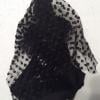Search the Community
Showing results for '"weight gain"'.
Found 15,849 results
-
OK, time flies, and my 6 months post op are coming up in few days. I wrote a detailed 3 months post op journey, with all the great health changes and weight loss. I am still enjoying the great health changes, and my weight is still going down, albeit bit slower now. No more acid reflux for me, yay! Weaning myself off Nexium slowly, and so far so good. I want to show few photos, I have 2 lots of Befores, as I was slim prior to my massive, rapid weight gain in 2014-2016. So, here are a couple of me in 2009, and 2013 Then the 2014-2016 photos. I hate them, especially the one on the right. The weight gain aged me so much, and I felt deformed, my eyes became slits, big arms etc. I actually don't have a photo of myself at my heaviest (222 Ib), I refused to have photos taken by then, and couldn't look in the mirror. I put on 90.2 Ib in 2 years! And finally post WLS, at 3 months (left) and now (right). I will take some body shots soon and post these. For now, just face shots, but I feel like I had a natural face lift Starting to look normal again. Still have 22-30 Ib to go, but already the changes are great! Very happy with my sleeve!
-
First, congratulations on quitting smoking. I'm an ex smoker too so I know how hard it is to quit. Do you think possibility anxiety from quitting smoking is making your band feel tighter? Or have you gained any weight because of the quitting smoking? I ask about the weight only because weight gain can increase the size of your stomach, making your band tighter.
-
@@loca_lette813 when I had my first appointment with Dr., I was 271. My insurance requires 90 days supervised weight loss. During my middle appointment I was up to 283. By my last appointment I was down to 276. They just submitted to my insurance (BCBS Federal) yesterday so I don't know yet if I'll be approved because of the weight gain. I'm really nervous, but Drs office thinks it should be okay... Sent from my iPad using the BariatricPal App
-


Cleveland/Northeast Ohio - interested in a group?
Renkoss replied to leonardsmama's topic in Gastric Bypass Surgery Forums
Melissa1987, I'm nervous and excited for you! Eek! Just think, you will already be down weight-wise by Christmas! I was told probably in March, 2016. I'm having a heck of a time trying to get any weight off. Right now I have a terrible upper respiratory infection and it is causing my blood sugar numbers to be very high. Therefore I have to use more insulin to even get to some decent area with them, and that just causes weight gain! The madness is never-ending! How are you doing on the complete Protein shake diet prior to the surgery? -


weight gain after surgery?? can this be possible?
shaundra posted a topic in POST-Operation Weight Loss Surgery Q&A
i am 5 days post-op. just got off the plane and weighed myself when i got home. i have gained 2 pounds! i just read someones post who is one week out and has lost 16 pounds already. i have had nothing but clear liquids for 8 days and feel like i walked home from san diego to oklahoma city. how can this be? im feeling really bummed right now. has this happend to anyone else? -
Kimmy, I'm 5'3, and a "pleasantly plump" 210 lbs. My BMI is 36.5. I have bounced around from 125 to 298 for 16 years........no less than 6 times. Trust me when I say I have the stretch marks, the batwing skin, the tummy flap, the saddle bags, the inner thigh pouches, the sacks my boobs were once in.......ALL great little reminders of the roller coaster of weight gain and weight loss. I'm 40 yrs old. My mom doesn't agree with the surgery, nobody close to me thinks of me as "that big", but I KNOW ME!!! I'm tired of fighting my weight, losing it, only to gain it all back again over a couple of years. I'm doing this for ME, NOT for my mother and certainly not for anyone who doesn't see me as "that big". I, I, I, I, and may I repeat again, I, ME, MYSELF am doing this so I, ME, MYSELF can bend over, run, breath, feel the muscles in my legs and stomach again, and LIVE LIVE LIVE and LAUGH without jiggling!!!!!! If you know your body, and you've made this decision based on your own personal needs, then you are doing the right thing. NEVER NEVER NEVER let others influence you into something that isn't theirs to choose!~ I WISH YOU THE BEST! Keep posting! Christal
-
Yesterday was a tough blog post for me. Because I had a bad morning yesterday, it started bringing up all those old feelings. I made myself remember all of it. Not just Buffalo Butt, not just the bus, but more... There were so many times that I was interested in a boy that befriended me only to end up dating one of my (thinner) friends. It's very possible it was because they just didn't want to date ME, but all I saw was rejection of a fatty. As an adult, I had two long distance relationships right out of college and that is it. Nada in about a decade. I've only kissed one guy in about 6 years, I think? And that was a drunken hook up at a friend's wedding. Ha! Growing up, I was the same size as some of my friends, but I always considered myself the fat one. I look at pictures and that wasn't really the case. All my friends had dates and boyfriends, but I didn't. My mom said that I always pushed them away or cut them off. The older I get, the more I realize that might be somewhat true. You know that Rodney Dangerfield quote about him not wanting to join any club that would have himself as a member? That's me, I think. In my head, I don't want to date anyone that would want to date me. Wow. That's just kinda sad...like, really...sad. Did I mention that I love boys? I do. I'm boy crazy, in fact!! I just never get past the admiring stage. I know I'm smart. I know I'm witty (in person...not so much in writing, ha!) I know that I am a natural leader, have a good work ethic and I'm nice. Apparently humble as well. But all that is negated much of the time because I'm fat. I was driving with a guy friend one time and he told me that guys will choose the skinny girl over the better looking overweight girl every time. He said that he knew it sucked, but it was true. That has really stuck with me. Now, don't get me wrong, I know that fat people get married, fat people have sex, fat people date. I know all of that. While I can imagine a romantic scenario with a cute guy in fantasy, I have a hard time truly imagining it in reality. About 4 years ago, I think I had a pretty good chance with a cute guy. We would email, talk on the phone and generally made excuses to see each other. It didn't work out and I started to gain weight. I didn't stop for 80 pounds. All the weight gain wasn't about him, for sure. But I have no doubt that it contributed to the start of it. I know I feel better about myself now at 227 than I did at 285. No question about it. So, I do think that as I lose weight, I will continue to feel better about myself. I don't think when I am 185 that I will see myself in the mirror as if I am 285 or 225. Maybe the argument is that I should be happy with myself regardless of the number on the scale. But I don't think that is my reality. We'll see. One thing I do know is that I haven't stuck with anything this long and I have officially lost more at one time than I ever have before. I WILL lose 120 pounds and I WILL feel good about my body. I can't promise that losing the weight will net me a boyfriend. I know better than that. But if I feel good about myself, I know that will reflect and will at least allow for the possibility. I will work on a happier post for tomorrow!!
-
Hi, I had a VSG on October 27th and have just been moved to soft food. I am following the nutritionist recommendations for food and portions. Over the last week I have not lost any weight and this morning am up 2lbs. Is this normal? Sent from my SM-G981U1 using BariatricPal mobile app
-
Stay away! I know it's hard but it's worth it. I was a coke junkie too but it has no place in my new life. Even diet coke has been linked to weight gain by causing cravings. Now no one wants that mess! Good luck girlfriend! Sent from my SAMSUNG-SM-G935A using the BariatricPal App
-


Water Weight Gain from Surgery ... How long before it is gone?
zoekids posted a topic in Mexico & Self-Pay Weight Loss Surgery
I knew that I would gain Water weight from the IVs. In fact they weighed me in MX 2 days post-surgery and I gained all but 1 lb back that I lost on the pre-op diet. I wasn't really that upset as I knew it would happen. But, I weighed this morning and I am still up 3 lbs. I have been eating less than 500 cals a day. I can see that I have lost weight. Why isn't it showing up on the scale yet? Grumble.... Mary -
Hi Alicia, Here's my experience after my fill: ( I have a 9cc band and was filled 5 cc) - Major pain if I don't chew well and then PB - Even Water if swallowed fast and often will come back - Feel hungry about every 3-4 hours What helps: - Chew Chew Chew and then Chew some more (the 20x regimen is good) - Drink warm water before you start your meal ( at the begining when I had just gotten the fill Sept 20- I would drink warm water with my food. I know they say not to drink with the meal but that was the only way the food would go down. Now that some time has passed, I can eat my food without any water. So you have to gage your body and see what works for you. - The slower you eat the less pain - I found that I have more pain when I am hungry and eat in a hurry. So don't wait until you are starving to eat. I start to heat my food at the first feeling of hunger. Sounds like you are at your sweet spot. I understand what you mean about eating eventhough you are not hungry. That's a habit that caused my weight gain and I struggle to kick it every day. You just have to be aware of it. I trick myself and say I will have it in 2 hours. This seems to work sometimes. Good Luck. You should start to notice some good loss now. Mary;)
-


If I can make it work after VSG...
feedyoureye replied to BABEwiththePOWER's topic in PRE-Operation Weight Loss Surgery Q&A
Research is starting to show that after you have reached the obese range of weight, your physiology changes, and it is not like a regular sized person who wants to lose a couple of pounds anymore. It is probably true that you could eat like you have the sleeve for a year and take off lots of weight... but that would be crazy! I ate 350 cals a day for the longest time, then slowly popped up to 800, 900 and now 1100 at 8 months. I will probable stay pretty close to this for the next year I am guessing. Without the sleeve and Drs supervision, that is pretty much an eating disorder! With a regular sized stomach, could you really eat this way for the rest of your life? That is why my diets failed in the past... I just couldn't keep it up. I couldn't fight the hunger, the small portions, or really HUGE portions of no calorie foods....no feeling of satisfaction...skipping meals, trying to stay away from the foods I loved. Well with the sleeve, I am satisfied with much less, I do watch protein intake and when I drink my liquids... but I can eat a little abnormally for long enough to get the weight off, and then eat pretty normally to keep it off without getting killed by those couple of weeks of birthday parties, holidays or vacations that make it sooo easy to bust the diet and spin out of control again. I just can't eat enough at this point to spin very far out of control, and the next day I just don't even want to eat crap. I say this at 8 months, and I see statistics show some folks have some weight gain between 1-3 years... I may not have met that challenge yet, but I am working on it right now changing habits before I get there. -


Anti-inflammatories off limits
bigmoe99 replied to kimsport's topic in PRE-Operation Weight Loss Surgery Q&A
Remember my ex on these and the weight gain due to Water retention. Not an option i hate prednisone due to water retention wiedht gain Sent from my iPhone using the BariatricPal App -
I'm 3 months post up. Started working out a week ago and I have gain some weight during the week. Same diet. No junk food. Is it normal? Is about 1 kilo. I'm doing weight at the gym though Sent from my SM-G920F using the BariatricPal App
-
My initial plan was to have sleeve surgery and see if my fertility boosted but I fear I left this too late. I’m 40 & my gynaecologist is recommending a hysterectomy for long standing adenomyosis and endometriosis. I have to accept this as I can’t tolerate my periods and I can’t stay on menopause injections long term. Weight gain is partially from my hormones. My question is can I have a sleeve first or will I regain after hysterectomy??
-
I'm thinking that your twin is experiencing the weight gain that is indicative of being overfilled! Also known as "soft food syndrome." When we cannot handle solids (which we need to make the band do its thing), we start eating soft and liquid foods. And we gain weight, because we are "eating around the band." Some people need a day or a few days post-adjustment to let the trauma of the fill (or unfill) subside so that the mucosal lining of the stomach is no longer swollen, and then they can return to solids. Sounds to me as though your twin either has an EXTREMELY sensitive stomach (how long post-op until she was able to eat?) or she is overfilled and will continue to gain weight because she will have no choice but to "eat around the band." Sue
-
I’m almost 2 months post op and after surgery I was losing weight but now on my normal diet and even following my doctors instructions I’ve gained 8 pounds in a week and I don’t know what I’m doing wrong. I exercise 60 minutes a day and I’m eating what my doctor suggested. I don’t know if it’s stress because I am very much stressed out but I don’t feel the need to eat away my emotions anymore. I'm just discouraged and wasn’t expecting to gain 8 pounds in a week. I also was told I need to take a probiotic due to chronic constipation now. I’ve tried 2 different types so far. the first was a chewable but it tasted nasty and made me gag. I already take calcium chewables and I can barely tolerate those but the calcium pills are too big for me and cutting them doesn’t help. I then switched to ProCare with the 3 in 1 basically. But I’ve found it hard to take the capsules. Before my surgery I took 8 capsules a day of a medicine called Diamox but stopped after surgery so I don’t know if it’s just the thought of taking capsules that big again or what but I can’t and it sucks. my question is: has anyone found any probiotic that works for you that is small like smaller or the same size of a Tylenol pill? And has anyone experienced rapid weight gain or what has helped you lose weight after surgery?
-
It sounds like you have a few issues to address. Firstly, you seem to have doubts about how well your op was done - NO food restrictions! Wow. I would be getting an independent medical review that ends with confirming your sleeve was done appropriately - or not - in regard to size/volume. Once that is confirmed, get an endocrine system full check - I'm particularly thinking of your thyroid function. Underactive thyroid is very common, and should be excluded. Even "subclinical" results (normal, but only just) can cause many symptoms like full blown thyroid dysfunction, including weight gain. Finally (or perhaps first), are you recording your diet? Many, many people on this forum will tell you they need to eat less than 1000 cal per day, low fat, low carb and zero alcohol in order to lose weight. With such a limited outcome over a year (unless you didn't have much to lose in the first place) you need to be systematic - and diligent - to get to the bottom of this. Good luck.
-

Keto and Bariatric Surgery
Bariatric Surgery Nutrition posted a magazine article in Food & Nutrition
First off, what is a ketogenic diet? The ketogenic diet is a very low carbohydrate, very high fat, low-moderate protein diet. Historically, it has been used to control epilepsy in children. When you don’t give your body carbohydrates (your body’s preferred fuel source), it begins to use and break down body fat as a source of energy, which is called ketosis. The breakdown of fat leads to the production of ketones, and the ketones are what begin to fuel your body (instead of the carbohydrates you were feeding it before). This process can take a few days to achieve, and when done correctly, can be tested by measuring the ketones in your urine with a dipstick. If ketones are present, this means you’re in ketosis. What does the macronutrient profile look like? FAT – A ketogenic diet should include healthy fats such as fats from fish, seafood, eggs, nuts, vegetable oils, dairy, and some meats. There is a lot of poor information on the internet that encourages people to have the majority of their fats in the form of cream, lard, bacon, and fried foods, which are not good for our heart. CARBOHYDRATES – The ketogenic diet is described differently depending on the source, but on average it means limiting your carbohydrates to 5-10% of total daily calories. For bariatric patients eating around 1200, 1500, or 1800 calories/day, this works out to 22, 28, or 34 g of carbohydrates/day, respectively. That’s very little! Foods rich in carbohydrates that are limited/eliminated in a ketogenic diet include: grain products (e.g. pasta, rice, bread, etc.), fruit, many vegetables (e.g. potatoes, corn, carrots, squash, etc.), some dairy products (e.g. milk, yogurt), legumes (e.g. chickpeas, beans, lentils), and sweets and sweetened beverages (e.g. chocolate, ice cream, pastries, juice, soda, etc.). That’s a lot of food groups being restricted! PROTEIN – On a ketogenic diet, protein is considered low-moderate (depending on your protein requirement), or around 15-20% of total calories. For bariatric patients eating around 1200, 1500, or 1800 calories/day, this works out to 52, 65, or 78 g of protein/day, respectively. Are these protein targets in the range that your dietitian has recommended for you? For many of you, likely not. FIBRE – Fibre falls under the umbrella of carbohydrates. Because you now know that carbohydrates are very limited on a ketogenic diet, you can guess that fibre will also be very limited. A diet very low in grain products, fruits, most vegetables, and legumes means that constipation is going to be a real issue! I heard that a ketogenic diet leads to rapid weight loss. It’s true in the beginning, but the important factor here is to understand what kind of weight loss this is. Yes, it’s true that reducing carbohydrates leads to weight loss, however the weight that’s initially lost is mainly water weight, not fat. Here’s a behind the scenes look at what’s going on: Your body always wants to keep your blood sugar well controlled, so it stores some sugar (or glycogen) in your liver. When you’re sleeping, or fasting, your body uses this stored glycogen to send some sugar into your blood, to be sure that your blood sugar doesn’t drop too low. Glycogen is stored in your body by attaching glucose to water. So when we empty our glycogen stores, we’re actually losing a fair bit of water as well, and that’s the initial weight loss that you see. The weight loss that follows from there is partly muscle loss if you’re not meeting your protein needs (which as discussed above, might be the case) and fat. While ketogenic diets have been shown to be better for weight loss than other low fat diets, the results are only true in the short term. In the long-term, there doesn’t appear to be any difference. You’re also more prone to rebound weight regain on a ketogenic diet once you re-introduce carbohydrates again (whether by choice, by cravings, or by obligation because you feel unwell without them). But I thought that the ketogenic diet was proven to be effective? The ketogenic diet isn’t a new diet at all. It’s actually been used for almost 100 years to treat children with severe epilepsy who don’t respond to medication. However, even these children don’t stay on the ketogenic diet their whole lives, they only do so for a temporary amount of time. These children are followed very closely by their doctor and dietitian to very slowly bring carbohydrates back into their diet. Despite what you dietitians say, I want to try the ketogenic diet! Ultimately, it’s entirely your decision to try what you want. We (as dietitians) are only here to guide you through the evidence that’s out there, and as of now, there’s no research on the ketogenic diet after bariatric surgery. There’s also not enough long-term research to know and understand if the ketogenic diet is safe for your heart in the long-term (i.e. more than 12 months of being on the diet). Three of our biggest concerns as dietitians are: 1) Are you meeting your protein needs? 2) Are you emphasizing healthy fats; 3) Are you just looking for a quick fix? If you’re using the ketogenic diet as a “reset” just like the last fad diet you tried, you’re only feeding the yo-yo dieting pattern (just playing devil’s advocate here!). Can I be on a ketogenic diet my whole life? The honest answer is we don’t know. We don’t have research on the long-term effects of following a ketogenic diet. It’s suspected that it may lead to higher cholesterol levels which may lead to heart disease, but more research is needed to conclude this. Does being on a ketogenic diet guarantee that I’ll keep the weight off? While more research is needed, one study showed that the participants who were very strict about following the ketogenic diet were able to keep off the initial weight loss for up to 56 weeks (or a little more than one year). We don’t have the research to say if in 10 or 20 years that their weight will still be stable or not. We do know however, that if you don’t find the ketogenic diet realistic for your lifestyle and you end up coming off of it, you will regain the weight (if not more), as with any temporary diet. Is the ketogenic diet safe? While it may be generally safe (meaning you’re not going to die) for most people, you should always check with your doctor, especially if you have heart disease, liver disease, and diabetes, as this diet may put your health at risk. The ketogenic diet is not considered safe for those who have chronic kidney disease. The ketogenic diet has received a lot of criticism because it’s a very restrictive diet, eliminating many foods and therefore many nutrients that are important for health. Following this diet puts you at high risk for micronutrient deficiencies. Make sure you discuss additional vitamin supplementation with your family doctor or dietitian. What are the benefits of a ketogenic diet? Aside from weight loss, following a ketogenic diet has been shown to improve blood sugar control in those with type 2 diabetes, lower triglycerides, lower LDL cholesterol (the ‘bad’ cholesterol), and raise HDL cholesterol (the ‘good’ cholesterol). Although these benefits sound attractive, know that other low fat diets have produced similar results, and would be safer in the long-term since they’ve been better studied and are less restrictive overall. What are the risks of following a ketogenic diet? Liver disease? – More research is needed, but several rat studies have shown an increased risk of developing liver disease. While results from rat studies don’t 100% translate into humans, animal studies often give an indication or at least a starting point for how something will affect the human body. More research is needed in human subjects. Muscle loss. – Another risk of following a ketogenic diet is muscle loss, because most patients aren’t able to meet their protein goals. Losing muscle may put you at risk of weight gain. Working with a dietitian while following a ketogenic diet can help you be sure you’re meeting your protein needs. Earlier death? – Like we’ve mentioned, there isn’t enough research yet on the long-term risks of following a ketogenic diet, but a recent study found that low carbohydrate diets (less than 40% of calories from carbohydrates) was linked to earlier death, compared to having a moderate-carbohydrate diet (50-55% of calories from carbohydrates). Remember that a ketogenic diet has around 5-10% of calories coming from carbohydrates. How did they explain this increased risk? The risk with a low carbohydrate diet seems to be because the carbohydrate calories are often replaced with more animal protein and unhealthy fats, rather than plant-based protein and healthy fats. Note that this study was not on bariatric patients, but again, the findings are interesting. What are the side effects of a ketogenic diet? Side effects during the adaptation period (i.e. in the beginning of following a ketogenic diet) include: brain fog, fatigue, headaches, nausea, strong smelling sweat and urine, constipation or diarrhea, and poorer exercise performance. Long-term side effects include: bad breath, micronutrient deficiencies, and muscle loss. What are common misconceptions of the ketogenic diet? Many people believe that it’s a carbohydrate-free diet, meaning no carbohydrates at all. This isn’t the case. You can have in the range of 20-50 g of carbohydrates per day (depending on how many calories you’re eating). If you don’t know what this looks like in terms of food, speak with your dietitian. Another misconception is that a ketogenic diet is high in protein. This also isn’t the case. A ketogenic diet is moderate in protein for the average person (who hasn’t had bariatric surgery), and is therefore typically low in protein for a bariatric patient. As you likely know, low protein puts you at risk of losing muscle which will affect your overall weight loss, and put you at higher risk of weight regain in the future. Other than muscle loss, what are other negative nutrition consequences of following a ketogenic diet after bariatric surgery? Low in fibre – The smaller food intake that you have after surgery already makes getting in enough fibre difficult. This partly explains why so many people are constipated after surgery. A ketogenic diet significantly limits most fibre-containing foods including fruit, most vegetables, grain products, and legumes, so your fibre intake decreases even more. Constipation is therefore even more of an issue! High in unhealthy fats – Many people don’t follow a ketogenic diet correctly and include too much saturated fats (or unhealthy fats) in their diet. For example, they may choose bacon, sausages, and lard, over fish, nuts, and vegetable oils. A diet high in saturated fats has been linked to heart disease. Low in many micronutrients – A ketogenic diet is also low in important vitamins and minerals such as thiamine, folate, vitamin A, calcium, magnesium, iron, and potassium. While you’re prescribed vitamins and minerals supplements after bariatric surgery, these standard prescriptions don’t account for you following a ketogenic diet. If you do decide to follow a ketogenic diet, it’s important to have your doctor or dietitian re-assess your vitamin and mineral supplements and for you to continue doing blood work regularly. Will I be able to exercise just as much while on a ketogenic diet? The downside to following a ketogenic diet is that it may actually reduce your exercise performance (across anaerobic, aerobic, and strength related exercises) in the short-term. If you’re doing low intensity exercises such as walking or a leisure bike ride however, you shouldn’t notice a difference. More research is needed to understand how a ketogenic diet affects exercise performance, especially in the long-term. I’ve been having episodes of low blood sugar after bariatric surgery. Can I follow the ketogenic diet? If you’ve been experiencing low blood sugar after surgery, it’s not recommended to start a ketogenic diet. It’s important to understand why you are experiencing low blood sugar as soon as possible. Here are some of the most common reasons for low blood sugar after bariatric surgery: Dumping syndrome due to high sugar intake Going long periods of time without eating Not eating enough carbohydrates or not spacing your carbohydrates out during the day Excess exercise An overactive pancreas Diabetic medication that is not adjusted properly Speak with your dietitian to figure out why your blood sugar keeps dropping. I plan to try the ketogenic diet for a few weeks and then come off of it. If that’s the case, then don’t bother. The reason this diet works for weight loss is because you are in ketosis (which in itself takes a couple of days to achieve because you need to use up your glycogen stores). If you come out of ketosis, you will no longer see the effects, and thus begins the yo-yo dieting effect. Always remember – Temporary changes yield temporary results! I’m already on the ketogenic diet, how can I come off of it safely? If you’ve already started the diet, reintroducing carbohydrates can lead to bloating, unstable blood sugars, and weight regain. To minimize these effects, begin by including whole grain products, rather than refined processed carbohydrates (e.g. white bread, breakfast cereals, pretzels, etc.). Whole grain foods include quinoa, brown or wild rice, oatmeal, bulgur, and barley. Sweet potatoes would also be appropriate. Include 1 to 2 tablespoons at only one meal per day for up to one week. If you’re feeling okay, begin including one fruit at one snack for a few days, and then try reintroducing yogurt and milk. But aren’t there doctors and health gurus out there promoting the ketogenic diet? Yes, there are, but there also were doctors and health gurus promoting the Atkins diet, the Pritikin diet, and the Dukan diet back in the day. There will always be people out there trying to capitalize on the newest fad diet to sell you on the weight loss dream and to take your money. It’s easy to point fingers and put the blame on specific foods or food groups, but ultimately the only way of eating that has been proven effective time and time again, is moderation. As dietitians, we know very well that ‘moderation’ (which means something different for each of our clients) isn’t sexy, but it’s key to having a healthy long-term relationship with food. I’m pregnant and I want to follow a ketogenic diet. Following a ketogenic diet during pregnancy is not recommended. While your body can handle being in ketosis, the production of ketones is harmful to your baby’s development, particularly their brain development. SUMMARY… – A ketogenic diet is very low carbohydrate, very high fat, low-moderate protein diet. – A ketogenic diet should emphasize healthy fats, but many sources online emphasize online unhealthy fats (e.g. bacon, sausage, lard, cream, etc.). – A ketogenic diet is very low in carbohydrates. This means that it’s not only grain products that are limited (e.g. pasta, rice, bread, etc.), but also fruit, many vegetables, some dairy products, legumes, and sweets. – By default, a ketogenic diet is also low in fibre which results in constipation in many patients. – A ketogenic diet is considered low-moderate in protein. Most bariatric patients aren’t able to meet their protein needs on ketogenic diet which results in muscle loss. – We don’t know the effects of a very high fat diet on health long-term, but it likely isn’t good for heart health. – Many of the benefits of a ketogenic diet (e.g. weight loss, improved blood sugars, lower triglycerides, lower LDL cholesterol, increased HDL cholesterol, etc.), are similarly seen in low-fat diets (while being way less restrictive overall). – There are many unpleasant side effects to following a ketogenic diet including constipation, poorer exercise performance (at least short-term, no research on long-term performance), muscle loss, bad breath, and micronutrient deficiencies. – You likely need to take additional vitamin and mineral supplements while following a ketogenic diet. Regular blood tests are still very important. – A ketogenic diet is not recommended in a variety of health conditions, and is even considered dangerous for some (e.g. patients with chronic kidney disease and pregnant women). Always check with your family doctor and dietitian before making drastic changes to your diet. – The ketogenic diet has not been studied in people who have had bariatric surgery, so the short-term and long-term effects are unknown. – The ketogenic diet is very restrictive and is therefore not sustainable for the majority of people. Eating out and socializing around food become almost impossible. Our final thoughts… Many patients are quick to blame carbohydrates for weight regain. Instead of jumping to a ketogenic diet, we recommend reviewing the bariatric basics and booking an appointment with your bariatric dietitian. If you absolutely insist on trying a ketogenic diet, we suggest a “modified keto diet” that consists of more plant-based protein and healthy fats, with enough protein to be sure you’re maintaining your muscle mass. What are your thoughts on the ketogenic diet? Have you been tempted? Are you currently following a ketogenic diet? – Lisa & Monica, your bariatric dietitians P.S. For more tips on healthy living after bariatric surgery, follow us on Facebook (@bariatricsurgerynutrition) or check out our highly praised book HERE! -


holy hell **Confrontation or Enabling ?**
Healthy_life2 replied to Healthy_life2's topic in General Weight Loss Surgery Discussions
@@VSGAnn2014 @ I'm ok with making mistakes. I agree we should strive to do our best to get results. If people recognize their mistake or reach out for support after weight gain. They have to do the work. If they choose to get back on the horse, I will cheer them on. People that don't want to move forward...I don't invest my time. -


Feeling like something is wrong
James Marusek replied to Mr Edwards's topic in Gastric Bypass Surgery Forums
The three most important elements after RNY gastric bypass surgery are to meet your daily protein, fluid and vitamin requirements. Food is secondary because your body is converting your stored fat into the energy that drives your body. Thus you lose weight. Weight loss is achieved after surgery through meal volume control. You begin at 2 ounces (1/4 cup) per meal and gradually over the next year and a half increase the volume to 1 cup per meal. With this minuscule amount of food, it is next to impossible to meet your protein daily requirements by food alone, so therefore you need to rely on supplements such as protein shakes. I am assuming that you are following your surgeons directions on daily protein, fluid and vitamin requirements to a tee. Since you are several months post-op, one thing to do now at this stage is to assess your protein intake. Your daily protein requirement is met by a combination of the amount of protein you obtain from food combined with the amount of protein from protein supplements (protein shakes, protein bars). Right after gastric bypass surgery, the volume of food you consume is minuscule (2 ounces) per meal. But as you get further along, the meal volume increases. Therefore you have a very important option available to you. As a result, you can begin to reduce your reliance on protein shakes if you concentrate on consuming high protein meals. I went from 3 protein shakes a day, down to 2, down to 1 and eventually none when I reached 1 cup per meal at a year and a half post-op. This is important because protein shakes contain calories. If you can reduce your caloric intake, then you can end a stall. At least that was the approach that I used and it worked for me. In your case, I would recommend that you do not weigh yourself daily. Limit it to around once per month. Checking your weight daily seems to be causing stress. Stress can cause depression and weight gain. So avoid stress. -


1st post op appt.
BigOBoy123 replied to BigOBoy123's topic in POST-Operation Weight Loss Surgery Q&A
That's what he said. Not to worry about te weight gain because once a fill is done they would melt away. -


stretching your stomach after gastric sleeve surgery is it a myth?
Babbs replied to Healthy_life2's topic in Gastric Sleeve Surgery Forums
There is a YouTube video I posted in a thread not too long ago with Dr Wiener explaining that although it may stretch a little, it will never be back to its pre surgery size volume. I beleive it would take a considerable amount of constantly overeating to stretch it out. But I also understand any amount of stretching will lead to eating too many calories and weight gain, even just a little stretching. Good article! -


Three weeks after surgery I already feel like I have hit a plateau
ProudGrammy replied to trishrnyoung's topic in Tell Your Weight Loss Surgery Story
@@trishrnyoung you lost 20 lbs pre & post op?? that's wonderful there ARE certain medications that can rub the wrong way concerning weight loss some might cause weight gain this issue is something to talk to NUT or doc about an official stall, plateau is when you haven't lost any weight for at least 2-3 weeks not 2-3 days many times newbies et al have unrealistic expectations it took months and years to gain weight it's not gonna melt off overnight mom called the day after i came home from hospital she told me to stand up then she said "did your underwear fall down?" i told her it doesn't work that way!!! she said something like "Oh, I thought it did"!!! i'm sure you are following all the basic rules Water, Protein, portions, carbs, veggies etc please DON'T be discouraged!! "GOD Grant Me Patience Just Hurry Up About It" good luck kathy -
Congrats! Just worry about nutrients for you and the little one - don't stress about weight gain!















